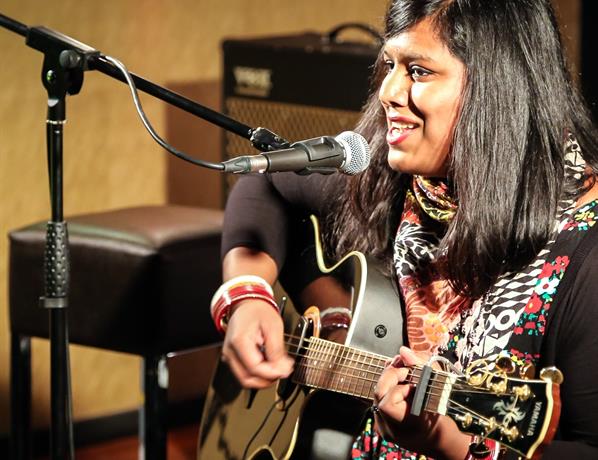
"We are IB" - Interview number 4. We interview Dilshini Sandhu (DS) who talks about her time as an IB-student.
Please, introduce yourself to us.
DS: My name is Dilshini, I am 32 and own my own music school here in London, called Mendis Music.
What were your first career steps after receiving your IB Diploma? Which university did you attend after your IB education and which university degrees were bestowed?
DS: The first thing I did after graduating was move to London. In the following 12 years I worked in Sales and Advertising for various companies, always in German speaking roles. I attended the University of Surrey, Roehampton to study Music and Psychology for my BA. Then went on to do my MA in Music Industry Management & Artist Development at the London College of Music. I‘ve also, very recently, completed my CPD Diploma in Child Protection in Education (Music).
What was your first job after IB and university?
DS: As I moved to London straight after the IB, my first job here was for a market research company. My boss had done her IB at an International School in Singapore and gave me the job on the spot.
Was your IB Diploma ever a topic in a job interview?
DS: Through the years it was mentioned several times throughout various job interviews.
How do you evaluate the IB Diploma as preparation for university? Do you think the IB Diploma is an advantage in comparison with other degrees?
DS: To this day, I think the IB was the hardest academic thing I‘ve ever done. University, especially when studying a subject you like, seems rather easy in comparison! With the IB, learning six subjects and being tested on what you‘ve learned over the past two years in one exam, was quite the preparation.
What do you value most concerning your IB education, which elements of the IB Programme do you still remember today?
DS: I really value being taught subjects like Business and Theory of Knowledge. Expanding your way of thinking and also teaching us how to carry on healthy discussions and debates about very interesting topics. I also feel the encouragement to participate in the arts is incredible. Making it mandatory to be involved in extra curricular activities meant the IB programme was aware of the benefits this has on students.
What are the biggest challenges of the IB Programme?
DS: Choosing which subjects to study for the next two years and essentially paving your path in higher education at such a young age was challenging. I ended up doing Music, Business and German as my higher level subjects. Funny, I ended up owning my own music school.
What skills should a student have in order to receive the IB Diploma?
DS: The skills needed to achieve the IB should be interest (choose subjects you like!), diligence and discipline. I felt having been on the IB Programme gave me an advantage to my peers at university, due to stress management skills I had acquired in the two years before University.
Would you choose the IB Programme for your school education again?
DS: Yes. My education is one I am very proud of. Not many people get the chance to study such an extensive programme at such a young age. The IB Programme prepared me in many ways. I would recommend it to anyone.
Dear Dilshini Sandhu, thank you very much for the interesting interview.
Photo (c): Dilshini Sandhu